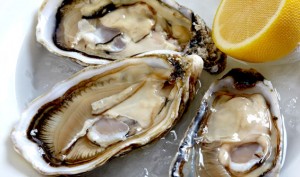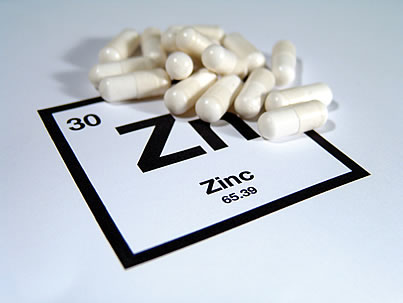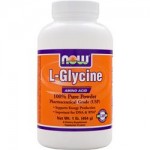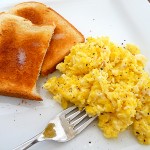By Kevin Cann – Steroidal.com Contributor
As competitive athletes we are always looking for something to give us a competitive edge. At the highest levels in sport and performance the difference in skill from the best players to the worst are so minimal that it drives a billion dollar supplement industry. Often overlooked is the importance of proper diet and recovery. If our diet is inadequate and leaving us with nutritional deficiencies our performance and recovery will both suffer. The vitamins and minerals in nutrient dense foods are some of our strongest performance enhancers. One of those nutrients is zinc.
Zinc is an extremely important nutrient in our diet. It is responsible for the effectiveness of over 100 enzymes, immune function, protein synthesis, DNA synthesis, and cellular division. It also plays a major role in our growth and development into adulthood (1-8). Zinc is found in every tissue in the human body, this is a clear cut sign that it plays a major role in human physiology. The recommended daily allowance for zinc is 11mg for males 19 years and older and 8mg for females in the same age category.
 Zinc deficiency is expected to be uncommon, however some studies suggest that 35-40% of the population over the age of 60 years old may have inadequate zinc intake. Zinc is found in foods such as oysters, meats, and other seafood. Whole grains and legumes also contain zinc however; they are bound to phytates, anti-nutrients that carry out minerals before they are absorbed by the body. Symptoms of zinc deficiency are altered taste 9one of the ways to test for deficiency is actually through a taste test), fatigue, poor immunity, bad memory, and even ADD and ADHD like behavior.
Zinc deficiency is expected to be uncommon, however some studies suggest that 35-40% of the population over the age of 60 years old may have inadequate zinc intake. Zinc is found in foods such as oysters, meats, and other seafood. Whole grains and legumes also contain zinc however; they are bound to phytates, anti-nutrients that carry out minerals before they are absorbed by the body. Symptoms of zinc deficiency are altered taste 9one of the ways to test for deficiency is actually through a taste test), fatigue, poor immunity, bad memory, and even ADD and ADHD like behavior.
Zinc needs to be in balance with copper, another mineral that is found in every cell of the human body. The proper ratio is .7 copper to 1 zinc. It is not uncommon to have excessive copper to zinc ratios and signs and symptoms of this are depression, PMS, ADD, and even autism. Another reason why having a diet adequate in nutrients and real foods is important. It helps to keep our nutritional status in balance.
Zinc may be a critical nutrient to us achieving our optimal performance levels. Studies have shown with exhaustive exercise that zinc supplementation can raise serum testosterone and free testosterone levels higher than in control groups (9). This study used 30mg of zinc supplementation over a 4 week period. This means that we may be able to push a bit harder in training and not have the decrease in anabolic hormones often associated with overtraining. This may be because zinc helps us buffer out oxidative stress.
The copper to zinc ratio also seems to play a major role in testosterone levels. Studies have shown that the increased copper to zinc ratio is correlated with decreased testosterone levels in 88 Korean men between the ages of 40-60 years old (10). This study also showed that normal testosterone levels were associated with higher zinc levels. This study just showed correlation so there may or may not be a direct relationship.
Not only can adequate zinc intake help you have more of the muscle building anabolic hormones, it may also help you lose weight. Insulin resistance is associated with weight gain and type 2 diabetes. Zinc plays a role in the synthesis and action of insulin. In 357 Spanish children, low zinc status was associated with insulin resistance. This study also stated that 89.4% of the children were deficient in zinc (11). This may indicate that zinc deficiency is a much more common issue then we thought.
Why would zinc deficiency be higher than we expect? Here in America we eat a diet high in whole grains and corn. In Spanish culture legumes and rice are a staple of the diet. These foods contain anti-nutrients called phytates. Phytates bind to minerals such as zinc and carry them through our system without being absorbed (12). On paper it may look like we are taking in enough zinc, but there just may be much less available to our system because of these factors that affect the digestion of these important minerals.
As we have seen in these studies zinc is an important mineral in human function. It is involved in a number of metabolic processes, important for immunity, protein synthesis, DNA synthesis, and cellular division. Zinc is a potent anti-oxidant that helps us buffer oxidative stress. Due to its ability to buffer this oxidative stress zinc may be a performance enhancer when undertaking exhaustive exercise. Zinc when taken during times of exhaustive exercise has been shown to increase serum testosterone and free-testosterone levels in men. This can aid in recovery as well as increasing muscle mass, helping us get the most out of every repetition in the gym. Zinc may also be important for weight loss. Studies have shown that zinc deficiency is correlated with insulin resistance. Insulin resistance is a major cause of weight gain and type 2 diabetes.
So how much zinc should we be taking in? First, we need to be sure we are getting adequate zinc from our diets. Our zinc intake also needs to be in balance with our copper intake in a ratio of .7 copper to 1 zinc. We can do this by eating plenty of wild caught seafood, especially oysters and other meat sources. We can also make sure we are taking in adequate zinc levels by minimizing foods such as whole grains, legumes, and rice as they contain anti-nutrients known as phytates that bind to minerals such as zinc and carry them through the body unabsorbed. Adult males need 11mg of zinc per day and females need 8mg of zinc per day.
As for supplementation, 30mg of zinc per day may be required. I would reserve the higher levels of zinc intake for periods of exhaustive training. If there is a phase of training that you know is going to be extremely challenging I would implement it here as zinc supplementation seems to raise testosterone greater then controls in these scenarios. The rest of the time to copper and zinc balance seems to be important to testosterone levels.
References:
- Sandstead HH. Understanding zinc: recent observations and interpretations. J Lab Clin Med 1994;124:322-7. [PubMed abstract]
- Institute of Medicine, Food and Nutrition Board. Dietary Reference Intakes for Vitamin A, Vitamin K, Arsenic, Boron, Chromium, Copper, Iodine, Iron, Manganese, Molybdenum, Nickel, Silicon, Vanadium, and Zinc. Washington, DC: National Academy Press, 2001.
- Solomons NW. Mild human zinc deficiency produces an imbalance between cell-mediated and humoral immunity. Nutr Rev 1998;56:27-8. [PubMed abstract]
- Prasad AS. Zinc: an overview. Nutrition 1995;11:93-9. [PubMed abstract]
- Heyneman CA. Zinc deficiency and taste disorders. Ann Pharmacother 1996;30:186-7. [PubMed abstract]
- Simmer K, Thompson RP. Zinc in the fetus and newborn. Acta Paediatr Scand Suppl 1985;319:158-63. [PubMed abstract]
- Fabris N, Mocchegiani E. Zinc, human diseases and aging. Aging (Milano) 1995;7:77-93. [PubMed abstract]
- Maret W, Sandstead HH. Zinc requirements and the risks and benefits of zinc supplementation. J Trace Elem Med Biol 2006;20:3-18. [PubMed abstract]
- Biol Trace Elem Res. 2011 Dec;144(1-3):454-62. doi: 10.1007/s12011-011-9138-2. Epub 2011 Jul 9.
- Biol Trace Elem Res. 2011 Dec;144(1-3):264-71. doi: 10.1007/s12011-011-9085-y. Epub 2011 Jun 14.
- Br J Nutr. 2012 Feb;107(3):398-404. doi: 10.1017/S0007114511003114.
- J. Nutr. May 1, 2000 vol. 130 no. 5 1378S-1383S







